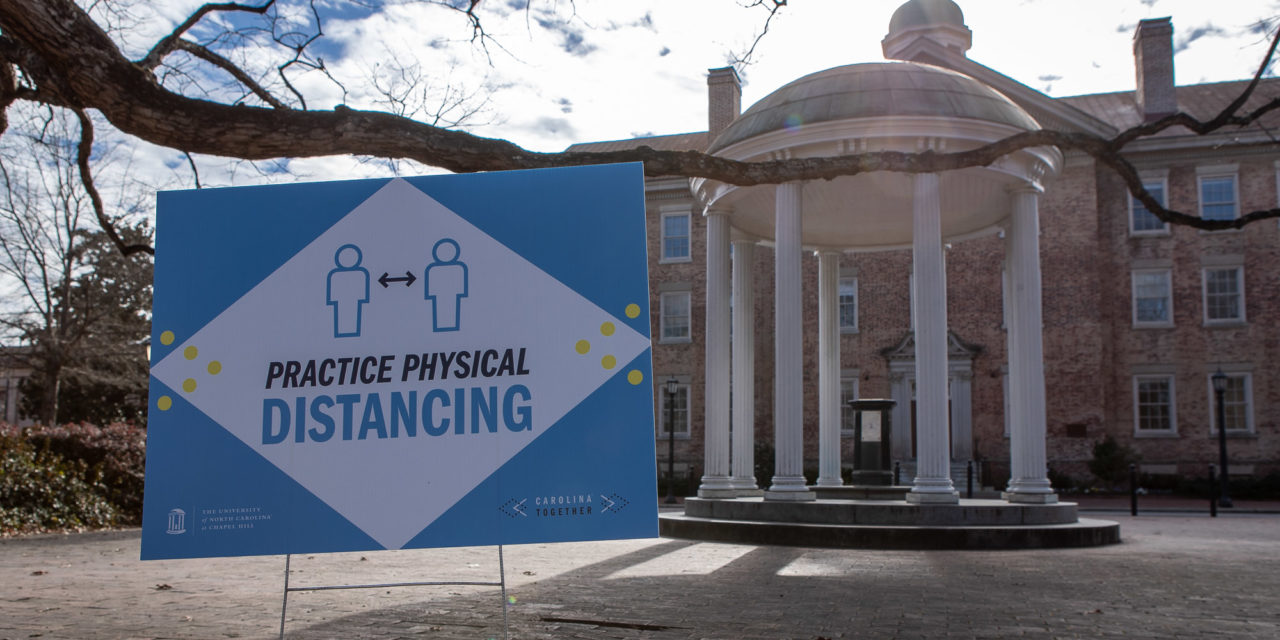UNC officials on Saturday reported a new cluster of COVID-19 cases at Avery Residence Hall, the university’s first cluster since classes began on Wednesday.
State health officials define a “cluster” as “five or more cases that are deemed close proximity in location.” UNC officials say there are five cases associated with this cluster.
All five individuals “are isolated and receiving medical monitoring,” according to the university’s statement.
While this is UNC’s first cluster of COVID cases since classes began, it’s the university’s second cluster in August: earlier in the month, UNC reported six cases related to an outdoor event at the Eshelman School of Pharmacy.
According to UNC’s Carolina Together COVID-19 dashboard, there have been 173 positive cases on campus so far this month, involving 128 students and 45 employees.
Learn more about the university’s COVID-19 plans.
This semester, UNC is requiring all students to either get the COVID-19 vaccine or submit to weekly testing. Starting Monday, nonvaccinated students will have to be tested at least twice a week. The Carolina Together dashboard shows 88 percent of students and 81 percent of faculty and staff have attested to being vaccinated.
So far in August, UNC has conducted more than 5,000 COVID tests at its on-campus testing facility. Of those, 106 have come back positive, for a positivity rate of 2.08 percent.
Most of the positive tests have involved students and employees who showed no symptoms of COVID-19: 64 asymptomatic students and three asymptomatic employees have tested positive for COVID since the beginning of the month. UNC has not released data on how many of those students and employees were vaccinated – but health officials say the COVID vaccines are effective at reducing symptoms of the virus, even in those rare instances when “breakthrough” cases occur.
UNC Chancellor Kevin Guskiewicz reiterated that message in a statement to the campus community on Friday, urging students and staff to get vaccinated. “The vaccines are safe, effective and free,” he said. “They reduce the contagion period, as well as the severity and length of illness if you become infected.”
Chapelboro.com does not charge subscription fees. You can support local journalism and our mission to serve the community. Contribute today – every single dollar matters.
Related Stories
‹

RFK Jr. Ousts Entire CDC Vaccine Advisory CommitteeOn Monday, U.S. Health Secretary Robert F. Kennedy Jr. removed every member of a scientific advisory committee on how to use vaccines.
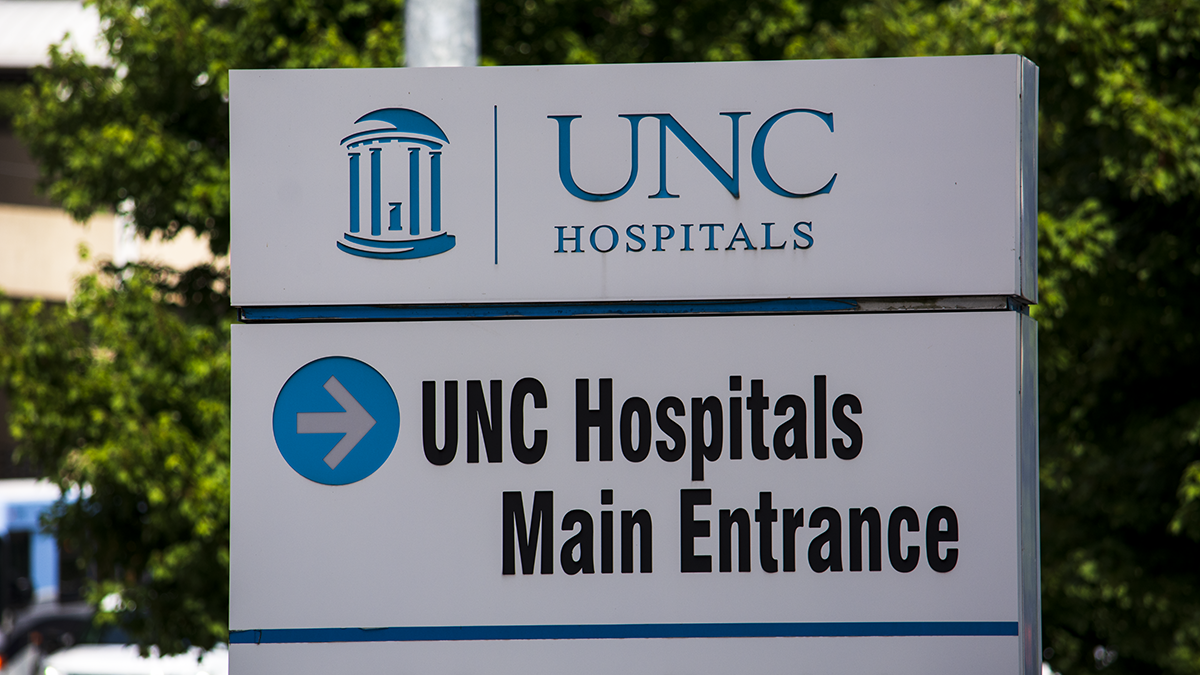
UNC to Get Infectious Disease Treatment DesignationUniversity of North Carolina hospitals will soon be designated as a treatment center for patients with highly infectious diseases in the region.

UNC To Follow County Guidance When Dropping Mask MandateEditor’s note: The Orange County government announced at its March 1 meeting its mask mandate will be lifted March 7. UNC leadership announced in a school-wide message Friday that it will follow Orange County Health Department leadership on indoor mask mandates. While other counties across the state are lifting their mask mandates, the Orange County […]
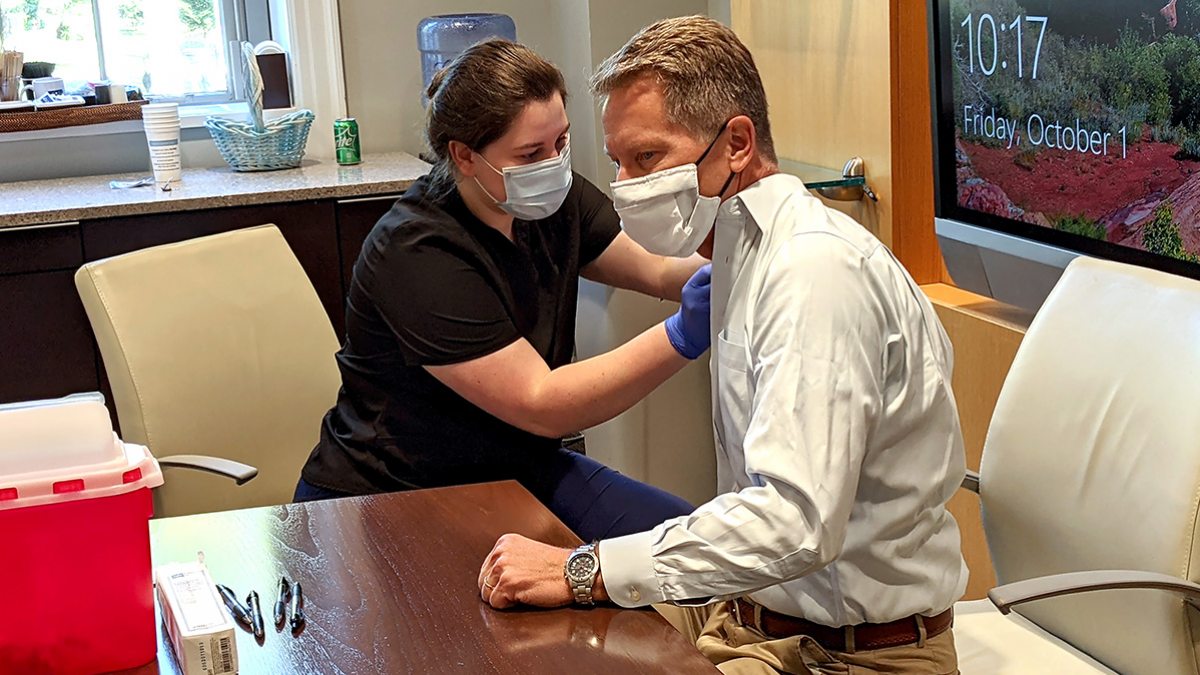
UNC Clinches National Title for Number of Flu VaccinationsFrom September to December 2021, UNC provided more than 7,700 flu shots to the campus community, effectively clinching the title of National Champions in the annual Alana Yaksich University Flu Vaccination Challenge.
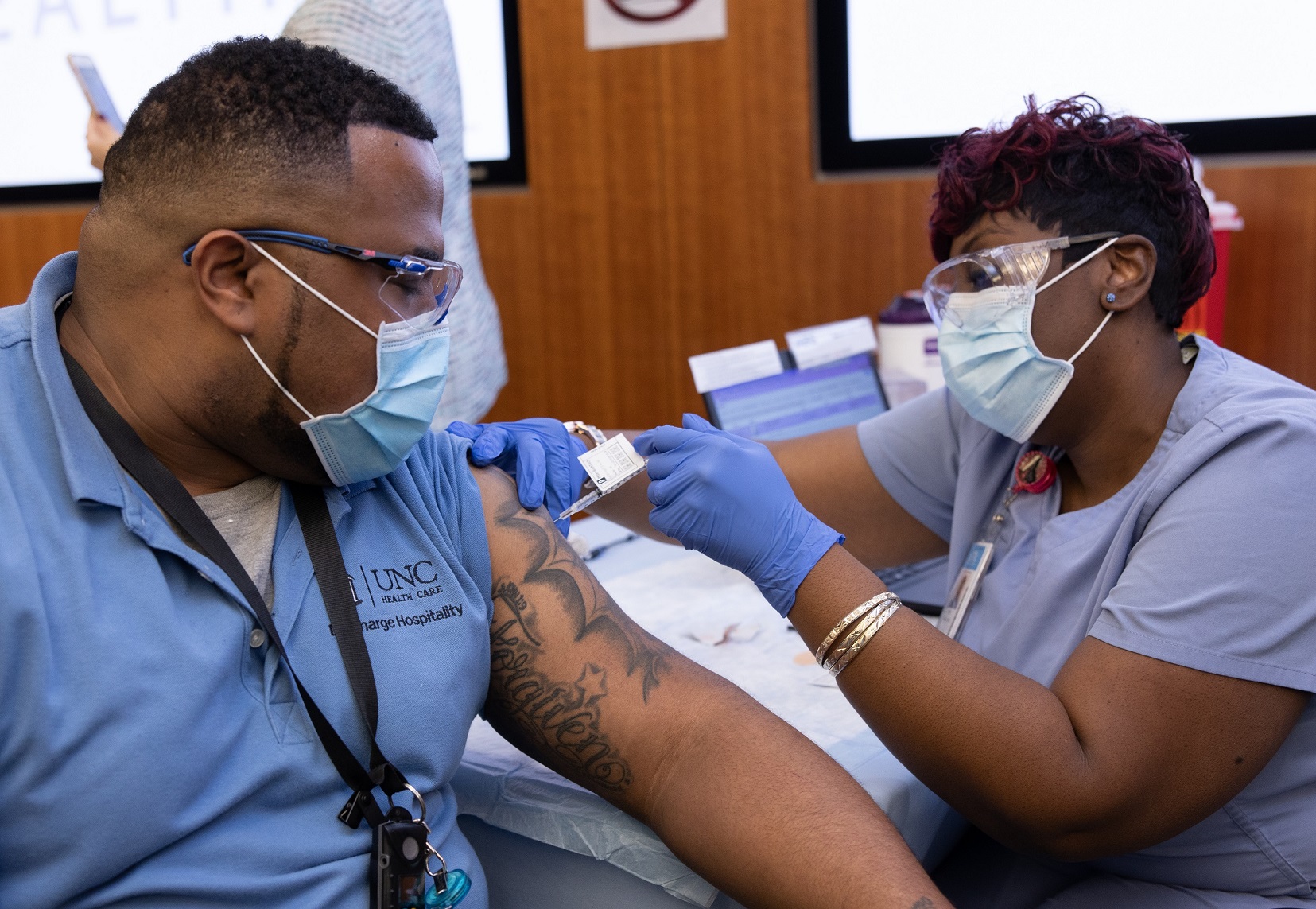
UNC Employees Required To Get a COVID Vaccine by Early DecemberUnder President Biden’s September Executive Order, UNC employees must be fully vaccinated against COVID-19 by early December. Those who do not comply may face disciplinary action from the university. Biden’s Executive Order 14042 and guidance issued by the Safer Federal Workforce Task Force requires employees of federal contractors to be fully vaccinated against COVID-19 no later than […]

UNC Announces 2021-22 COVID Guidelines for Winter SportsAs the start of basketball season approaches, UNC has released its COVID guidelines for attendees at any winter sports event. The guidelines largely resemble those for fall sports. As all winter sports are played indoors, masks will be required at any event in the Dean Smith Center, Carmichael Arena or any other indoor venue. Attendees […]
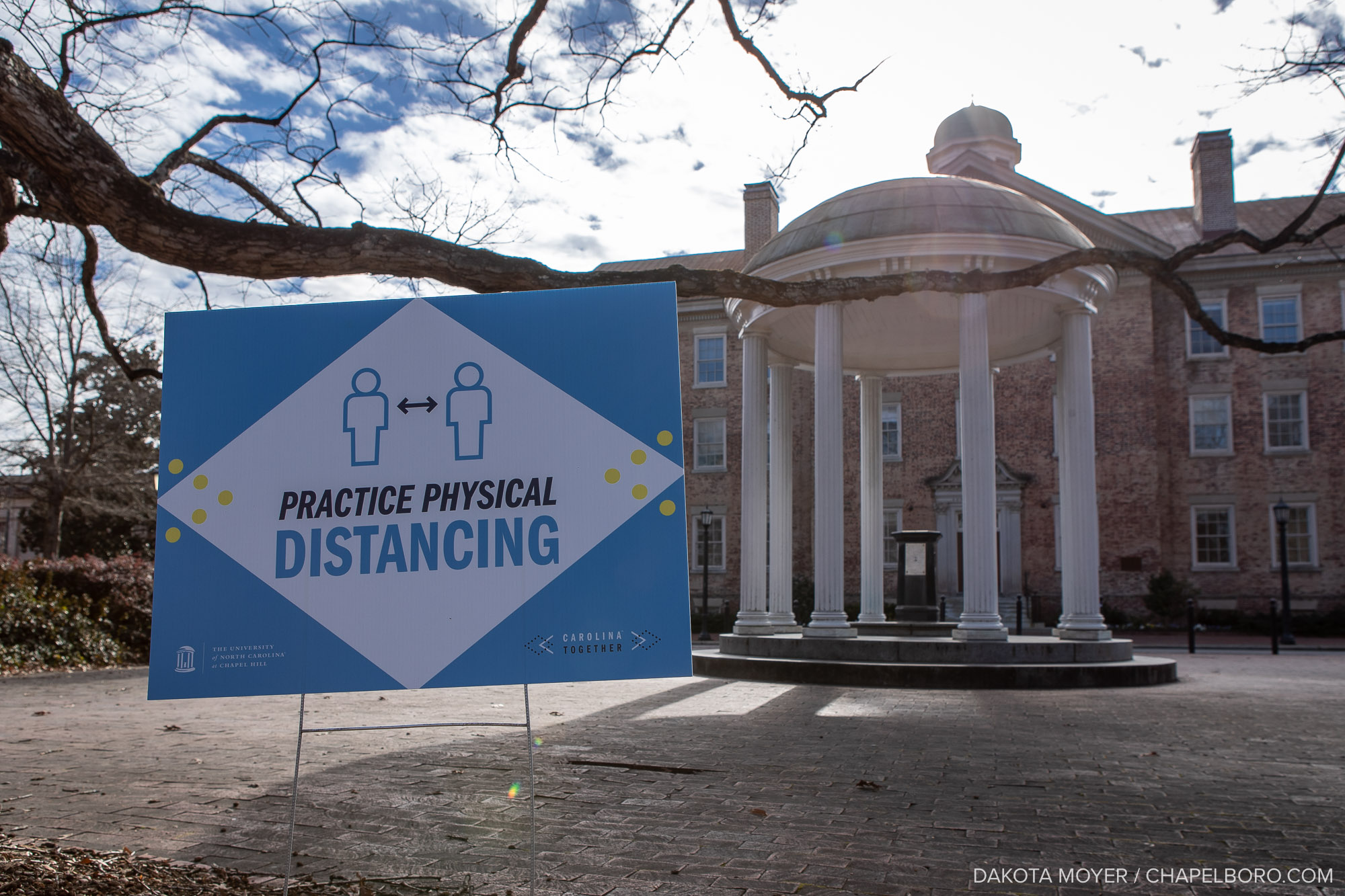
UNC Extends Employee Deadline for COVID Vaccinations, Introduces Incentive ProgramThe deadline for UNC employees to report their vaccination status has been extended, with a new incentive program introduced to encourage more faculty and staff to get their COVID-19 vaccine. UNC faculty and staff must report their vaccination status by October 1, an extension from the previous deadline of September 15. In a statement to […]

UNC Football Offering Free Vaccines and Tickets to FansStarting with Saturday night’s game against Georgia State, UNC will be offering free COVID-19 vaccinations in front of Kenan Stadium. The vaccination tents will be located between gates 5 and 6 at the stadium, and will be operating from 4 p.m. to 7 p.m. before the game. The Moderna, Pfizer and Johnson & Johnson vaccines […]
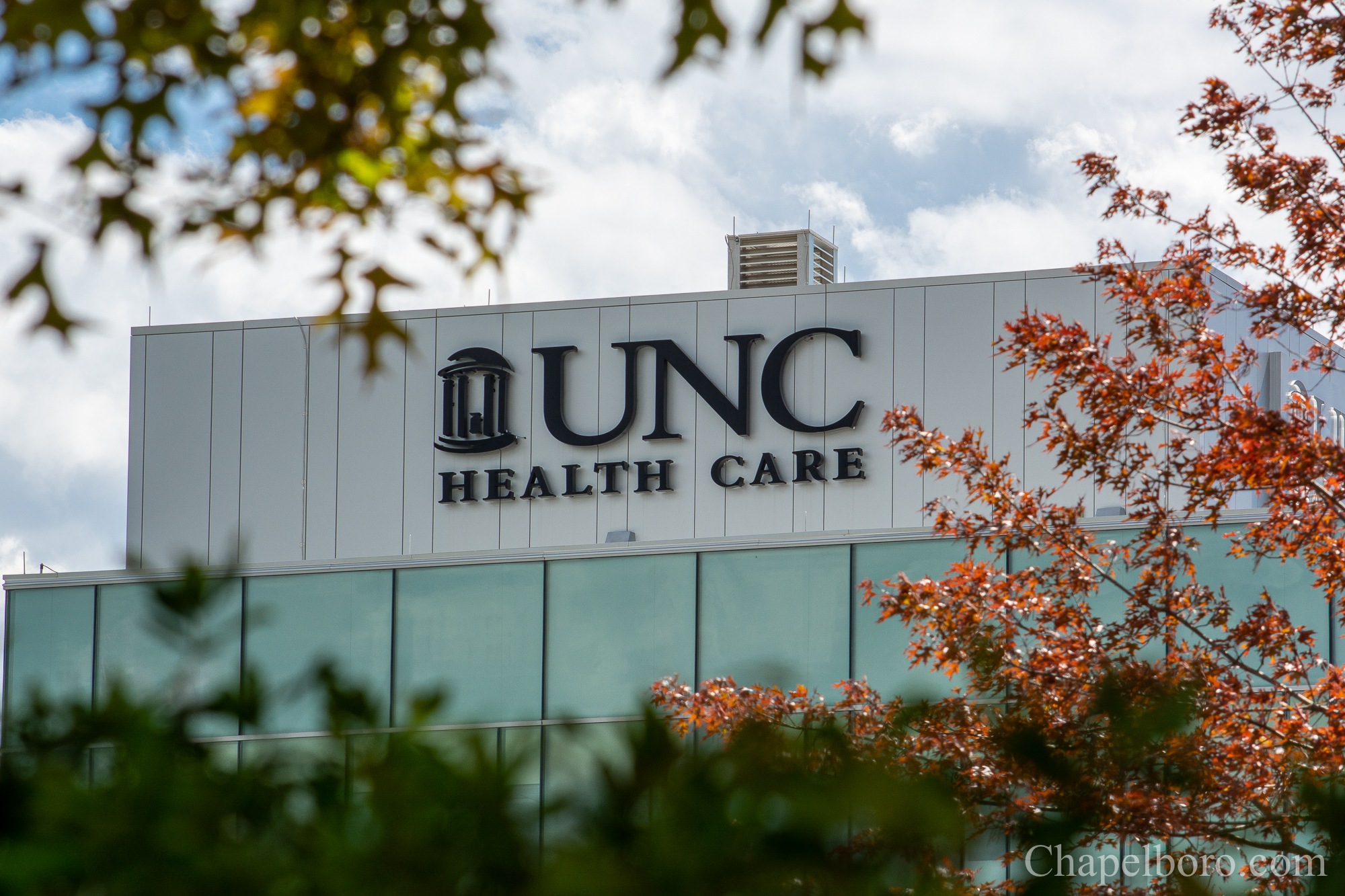
COVID-19 Therapeutics Available at UNC Health, Clinical Study Aims for MoreFor those who are showing symptoms and test positive for COVID-19, therapeutics are available right here in North Carolina to help keep residents out of the hospitals. Plus, clinical trials are underway at UNC to create better, more accessible treatments for those infected.

UNC Reports COVID Cluster at Avery Residence HallOfficials say five cases are associated with the COVID-19 cluster at Avery Residence Hall, UNC's first cluster since classes began this week.
›

